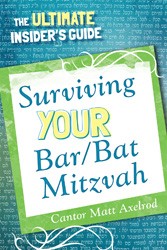Tales of the Havurah recalls life in the Jewish counterculture in post-1960’s Boston. A mixture of interrelated stories both funny and serious, the book ushers the reader into a big old rambling house that serves as home to Havurat Chaim, a fictional alternative community that is also the heart of local Jewish countercultural comings and goings.
Narrated by a talkative, sometimes pot-smoking host named Solomon, who is endowed with an unorthodox, ironic, and yet poetic religious bent, the stories introduce the reader to a little universe of educated but not-always-reverent young adults experimenting in creating a new style of close-knit Jewish community while also seeking to forge a meaningful, contemporary spiritual life.
Solomon spins out tales about his own and his fellow group members’ personal lives, their loves and friendships, their inner struggles, and their often unconventional but committed relationship to Jewish observance.
The book captures a particular moment in America, when a rebellious youth culture intersected with traditional Jewish practice, symbols and values, and ultimately brought profound changes to American Jewish society at large.

Fiction
Tales of the Havurah
September 1, 2020
Discussion Questions
Courtesy of David Kronfeld
- What is your impression of the 1960’s – 70’s?
a. If you were alive then, what were you doing and what did that time in history mean for you? Did you feel positively or negatively to the turmoil of those days?
b. If you were not alive then, what are your impressions of that era? What images or ideas stand out most for you? - Have you ever had something you would call a “religious experience”?
a. What was it like? How often did it occur?
b. What were its repercussions on your life?
c. How does religious experience reverberate in Solomon’s life throughout the book? - What do you think of Solomon as a character?
a. Is he admirable? Is he a jerk?
b. Is he a reliable narrator? - Which of the other characters’ religious sensibilities can you identify with?
a. Which, if any, do you view with criticism? Which, if any, do you admire?
b. What does Solomon feel about them? Is he justified? - What do you feel about the use of marijuana or other forms of intoxication in the stories, and as a literary device?
- Focus on any individual story and consider its theme and symbols. Which symbols, in which story, particularly stand out, to you?
a.What is the author trying to say by manipulating Jewish symbols and traditional concepts? How is he using or changing them?
b. How does the use of traditional Jewish themes and symbols function as a way of either supporting the story’s plot or main idea, or of commenting upon it in some other way? - Do you recognize echoes of traditional Jewish liturgy in the various stories? Which ones?
- How does time – and Jewish time – function as a unifying device for the stories? What are the various levels of time and the different chronologies at play throughout the volume?
- Would you like to live in a religious community like the Havurah? Why or why not? How is it different from the community or communities you participate in?
- What do you think of the ending? What does it say about Solomon and his religious sensibilities? His Jewishness?

Jewish literature inspires, enriches, and educates the community.
Help support the Jewish Book Council.


